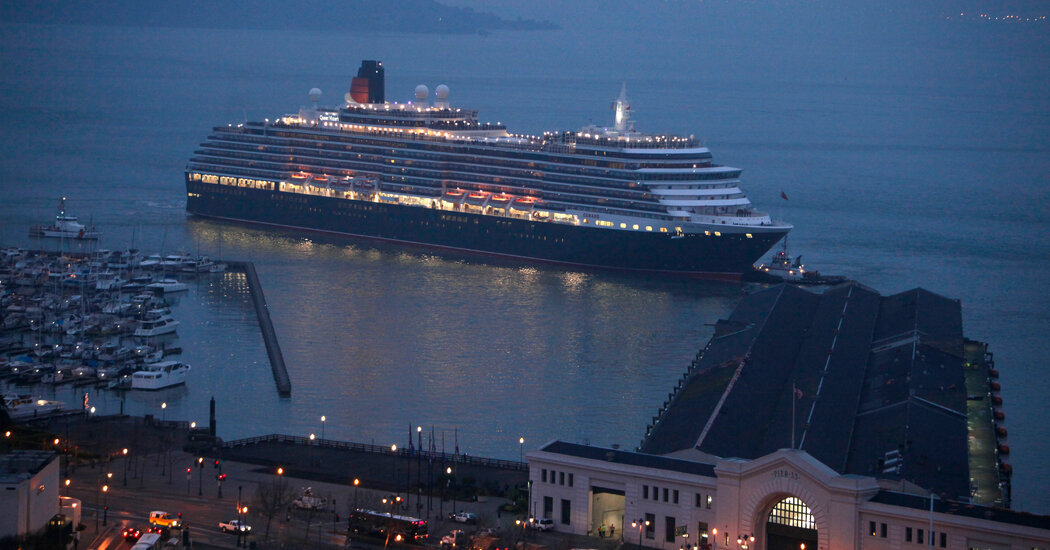
The Centers for Disease Control and Prevention is investigating an outbreak on a luxury cruise ship after more than 150 people reported symptoms of gastrointestinal illness, including diarrhea and vomiting.
The ship, the Queen Victoria, operated by Cunard Line, departed Southampton, England, on Jan. 11 on a 107-night cruise that included recent stops in Florida and San Francisco, according to the company’s website. The ship is scheduled to arrive in Honolulu on Monday.
The C.D.C. said that, as of Thursday, 129 passengers and 25 crew members had reported being ill on the ship. The agency said 1,824 passengers and 967 crew members were aboard at the time of the outbreak.
The cause of the illnesses was unknown, the agency said.
In a statement, Cunard Line, which is based in Southampton, said that “a number of guests had reported symptoms of gastrointestinal illness” on the ship, which arrived in San Francisco on Tuesday after stops in Mexico, Guatemala, Panama and Aruba.
The cruise line “immediately activated their enhanced health and safety protocols to ensure the well being of all guests and crew on board and these measures have been effective,” the company said.
In response to the outbreak, the crew of the Queen Victoria have “increased cleaning and disinfection procedures” and have “isolated ill passengers and crew,” the C.D.C. said.
The agency said that it was remotely monitoring the situation, including “reviewing the ship’s outbreak response and sanitation procedures.”
The ship left San Francisco for Honolulu on Wednesday and was traveling off the west coast of the United States on Thursday, according to the ship-tracking website Cruise Mapper.
After it arrives in Hawaii on Monday, the ship’s scheduled stops include Fiji, New Zealand and Australia.
Though intestinal illness can spread quickly on cruise ships, outbreaks are infrequent, according to the C.D.C.
One high-profile outbreak took place in 2014, when 595 passengers and 50 crew members aboard Royal Caribbean’s Explorer of the Seas fell ill with bouts of vomiting and diarrhea, forcing the ship to return early to New Jersey.
Acute gastrointestinal illnesses, including the highly contagious norovirus, are associated with cruise ships because close quarters among passengers and crew members increase the amount of group contact, the agency said.
People who are infected when they board the ship may spread viruses to other passengers and crew.
Public health officials track illnesses on cruise ships so “outbreaks are found and reported more quickly on a cruise ship than on land,” the C.D.C. said.





